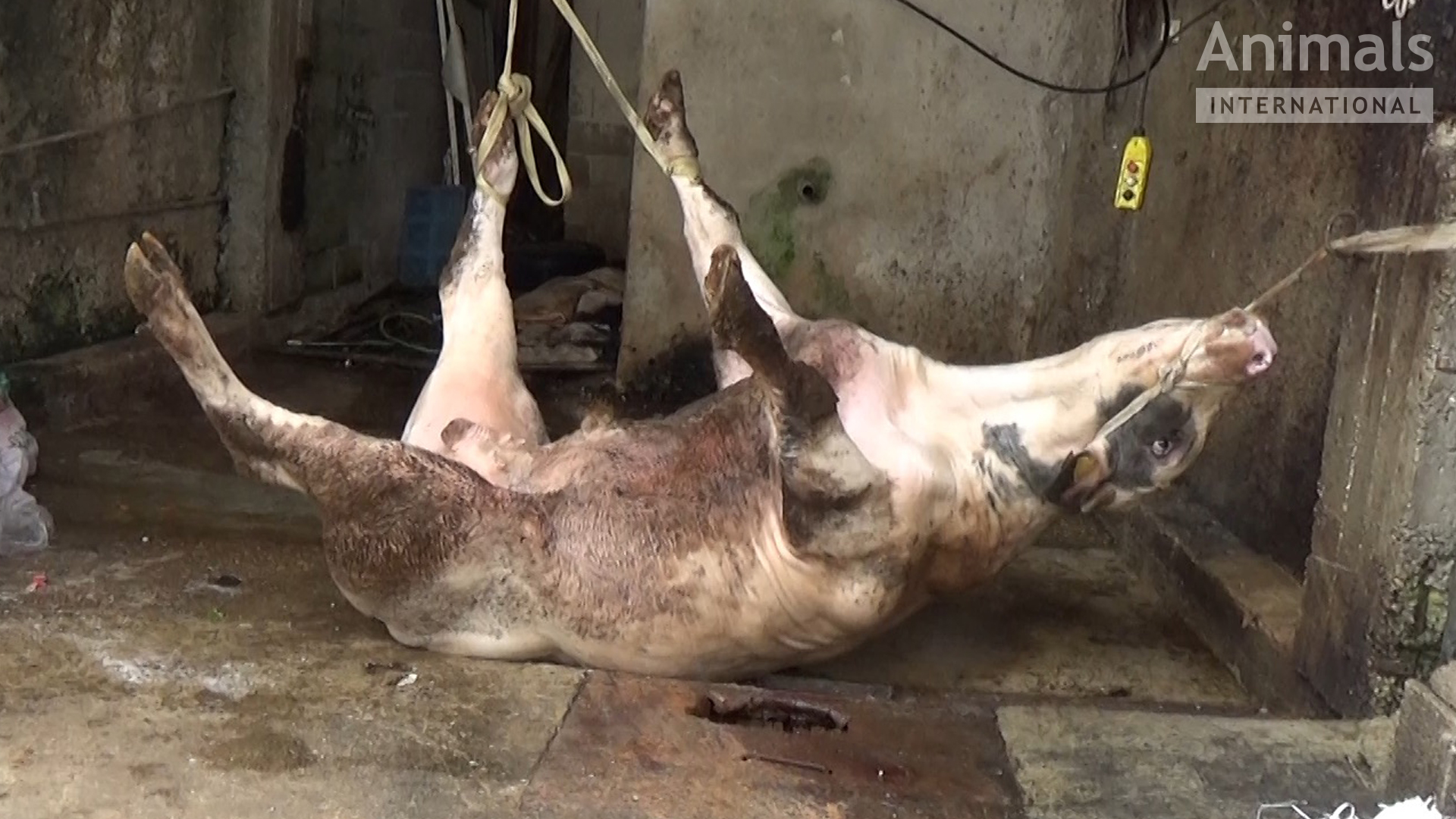In big news for animals and a potentially huge blow for the cruel global live export trade — the European Parliament may soon vote to stop live animals being exported outside of Europe.
The EU Parliament’s Agriculture Committee has just voted to uphold and enforce their 2005 law which aims to protect animals during transport — a law which is currently overlooked by many member states. Critically, this law states that if transport, handling and slaughter practices in non-EU countries don’t meet European standards — the export of live animals to these countries must end.
Such a decision would spare millions of animals suffering every year in countries where there are no laws to protect them from extreme cruelty. In fact not one of the importing countries currently taking animals from Europe meets the EU’s standards for animal welfare.
Animals International, the global arm of Animals Australia, has spent two years investigating the export of animals from Europe to countries within the Middle East and North Africa. While our friends at the Animal Welfare Foundation have relentlessly documented the suffering of animals transported within Europe.
We’ve seen animals trucked through sweltering conditions within Europe. We’ve seen exhausted animals in EU harbors routinely shocked with electric prods to force them up ramps onto ships. And we have seen terrified European bulls hoisted to the ceiling by one rear leg or bound by ropes before having their throats slit.






